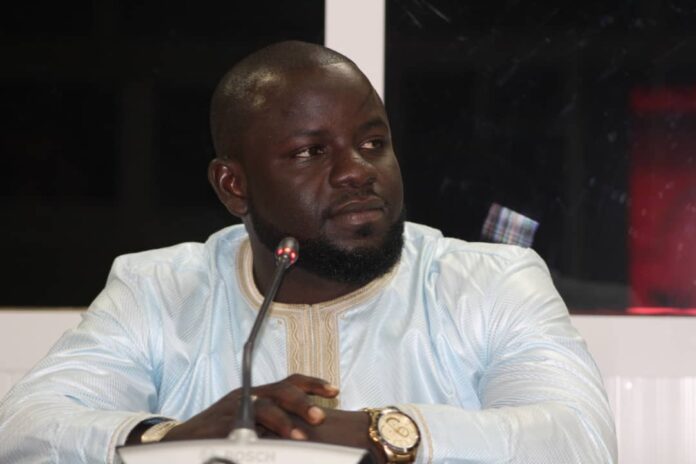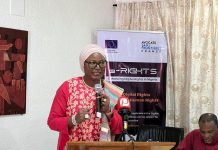By Nelson Manneh
Modou Njie, one of the December 2014 coup survivors, has on Wednesday 26th May 2021 faced the Truth, Reconciliation and Reparation Commission (TRRC).
The witness said he joined the Gambia Armed Forces when he completed his secondary education. He said he completed his military training in 2010. He said after completing his training, he was posted to the State House as an Infantry Soldier. He said he also went through series of other trainings before he was posted to the State House.
“At State House, my functions were to protect the President and his immediate family. I also served as a clerk and military intelligence,” he said.
In 2012, the witness said he left the service in search of greener pasture because the service was not lucrative.
“I left the military because conditions of services were not good and the salaries were poor. I also observed that our commanders were frequently sacked and jailed,” he said.
The witness said senior officers were afraid of former president Yahya Jammeh because some of them were tortured.
“In the case of Lang Tombong Tamba and Co in 2009, after the coup, they were elevated, but they were later maltreated at the end. I also heard that he (Jammeh) used to beat officers at the State House,” he said.
Njie said at the time, people were disappearing and he was among the people who were hoping for change. He said former President Jammeh used to tell them that he cannot be removed from power through the ballot box that was why they decided to stage a coup.
“Some of us who were in the diaspora tried to come together because we were not happy with what was happening in the Gambia,” the witness said.
The witness said they first bought guns and ferried them to The Gambia. He said Alagie Barrow was responsible for the purchasing and ferrying of the guns to the Gambia. He said Mustapha Faal, Lamin Sanneh, Bai Low, Dawda Bojang and Musa Sarr came to The Gambia for the coup four days before the attack.
“It was Cherno Njie who funded the whole activity,” he said.
Njie said they thought the task will not be hard because they wanted it to be a bloodless coup and they did not want anybody to die.
“We all knew that coup d’etat is a crime, but it was the last option we were left with,” he said.
The witness said if they had succeeded, Cherno Njie would have been their leader. He said on the first day of the coup, which was on a Saturday, they armed themselves and moved up to where Radio Sid was, but they later decided to stop there and went back.
“We rested for two days and on Tuesday, we decided to launch the coup because Jammeh has traveled on that day. We agreed that when we reach the statehouse, we are going to explain our mission to them. I was within the team that went through the front gate and that team was led by Lamin Sanneh. Musa Sarr and others went through the back gate. Mustapha Faal was nowhere to be seen on that faithful day,” he explained.
The witness said they disarmed the officers they met at the front gate. But then one of the soldiers on the tower fired a warning shot and the other soldiers followed by shooting at them.
“I forcefully opened the gate and ran outside that was how I escaped,” he said.
The witness said when Lamin Sanneh was shot, Ngaga Njie went to help him and that was how he too was shot.
“I called Bai Low initially, he received my call and I spoke to him. I informed him that Lamin Sanneh and Ngaga Njie were already down. I wanted to shoot at the soldiers, but I was alone and I decided to secure my life,” he said.
Njie said he was later arrested and taken to ‘Bambadinka’ at the National Intelligence Agency (NIA). He said he was not physically tortured at the NIA, but he received mental torture because he saw his father there.
“My father was arrested because they said I was part of the coup. My dad was not charged. Some of my colleagues, who were arrested, too were seriously tortured by the “junglers”, he said.
The witness said he was charged and arraigned before the High Court and was convicted and sentenced to life in prison. He said he was then detained at Mile II until 2017 when President Barrow came to power and released them. He said a lot of prisoners were tortured at Mile II. He added that his father was never arraigned in court, but was detained at the NIA headquarters.

















